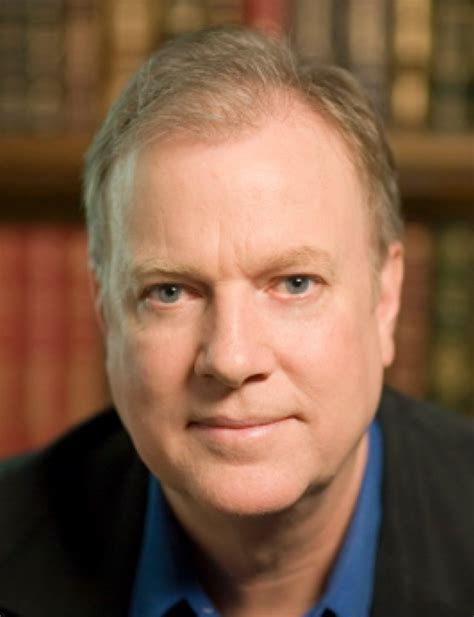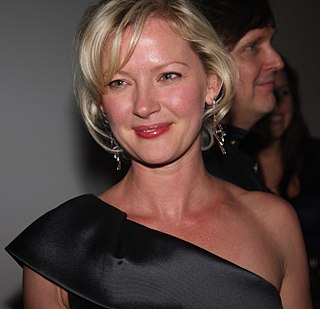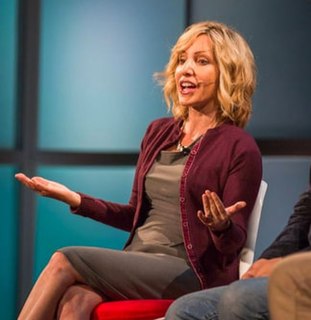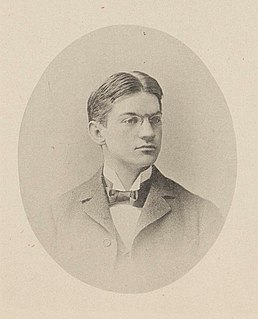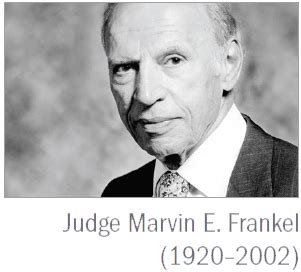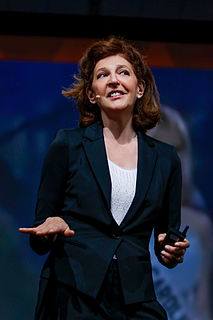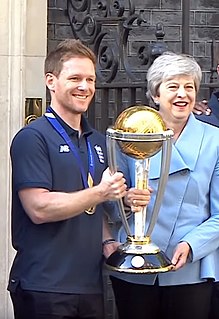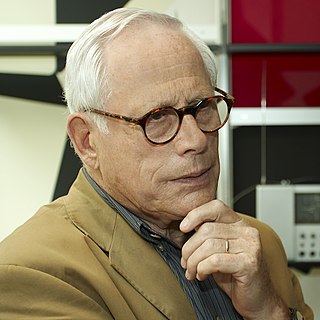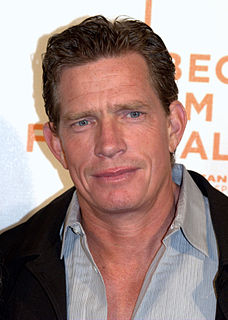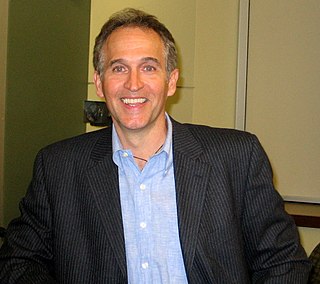Top 1200 Good Information Quotes & Sayings - Page 14
Explore popular Good Information quotes.
Last updated on December 19, 2024.
It's irrational to assume you can ever truly evaluate yourself as a good or bad human being. You will never have enough information.That "bad person" at work who torments you might be an excellent father to his kids. That other "bad person" at work who screwed up royally today? That error might later lead to a huge breakthrough. We will never have enough info to holistically evaluate a person and score them in totality as "bad" or "good."
...We then examine a particular coding system in DNA and discover that UI [universal information] is conveyed within the genes. Using this DNA evidence and scientific laws governing UI as premises, we are able to develop sound, logical deductions. This leads us to the following conclusion: the God of the Bible exists and He is responsible for originating and embedding Universal Information into biological life.
We see it in attempts on Capitol Hill to impose gag rules on rules on doctors on what they can say to their patients about family planning. And we certainly see it now with an effort by the government to tap our phones; invade our medical records, credit information, library records and the most sensitive personal information in the name of national security.
My favorite piece of information is that Branwell Brontë, brother of Emily and Charlotte, died standing up leaning against a mantelpiece, in order to prove it could be done. This is not quite true, in fact. My absolute favorite piece of information is the fact that young sloths are so inept that they frequently grab their own arms and legs instead of tree limbs, and fall out of trees.
New information technologies-including email, the web, and computerized blast-faxes and phone calls-have fundamentally changed the landscape of political competition in modern democracies. They've done so in three ways: by dramatically boosting the access of individuals and special interests to politically potent information, by making it easier for such people to coordinate their activities and exert political power, and by greatly increasing the pace of events within our political systems.
I think it is less the limited amount of information than the filters that information about the Middle East must pass through before being fairly addressed in the mainstream media. In more intellectual and geopolitical terms, the perceptions of the region are distorted by a combination of Orientalism and the priorities of the state of Israel, including the refusal to discuss the relevance of Israel's nuclear weapons arsenal in the context of addressing Iran on its nuclear program.
Digital technologies are setting down the new grooves of how people live, how we do business, how we do everything--and they're doing it according to the expectations of foolish utopian scenarios. We want free online experiences so badly that we are happy to not be paid for information that comes from us now or ever. That sensibility also implies that the more dominant information becomes in our economy, the less most of us will be worth.
You'd expect, as good Darwinian creatures, we would evolve to be fascinated with how the world really is, and we would use language to convey real-world information, we'd be obsessed with knowing the way things are, and we would entirely reject stories that aren't true. They're useless. But that's not the way we work.
At the turn of the [21st] century it was really Sergey Brin at Google who just had the thought of, well, if we give away all the information services, but we make money from advertising, we can make information free and still have capitalism. But the problem with that is it reneges on the social contract where people still participate in the formal economy. And it's a kind of capitalism that's totally self-defeating because it's so narrow. It's a winner-take-all capitalism that's not sustaining.
And it soon became obvious to me that I had to process and keep my relationship with my ex-wife separate from that of my children. They didn't need or want too much personal information about our relationship. Change is good, and ultimately, creating a new path at this point in my life is energizing, creative, and rejuvenating.
Many writers struggle with exposition in their novels. Often they heap it on in large chunks of straight narrative. Back story – what happens before the novel opens – is especially troublesome. How can we give the essentials and avoid a mere information drop?
Use dialogue. First, create a tension-filled scene, usually between two characters. Get them arguing, confronting each other. Then you can have the information appear in the natural course of things.
Every child's taste is different. Don't worry if they're not reading 'War and Peace' at age 12. First, build a good foundation and a positive attitude about reading by letting them pick the stories they enjoy. Make friends with a bookseller or librarian. They are a wealth of information on finding books that kids enjoy.
Microsoft is in a court battle with the Department of Justice. The DOJ is saying, "We want information from your data center in Ireland. It's not about a US citizen, but we want it." Microsoft said, "OK, fine. Go to a judge in Ireland. Ask them for a warrant. We have a mutual legal-assistance treaty. They'll do it. Give that to us, and we'll provide the information to you in accordance with Irish laws."
The first people that have the information are the hair and makeup ladies and the wardrobe people, because they often have to plan out the clothes: the things that are gonna get bloody, and the different kinds of gunshot wounds they're gonna have to do. They often have more of a preparation, more time, than we do. You can definitely feel on set the actors trying to get that information, and they're of sworn to secrecy.
Modern statisticians are familiar with the notion that any finite body of data contains only a limited amount of information on any point under examination; that this limit is set by the nature of the data themselves, and cannot be increased by any amount of ingenuity expended in their statistical examination: that the statistician's task, in fact, is limited to the extraction of the whole of the available information on any particular issue.
I experienced direct telepathy with other people, and during one such incident, I I received a channelling of cosmic information from some being in another realm. It came directly through a friend who was tripping on acid, and as he began speaking stream-of-consciousness to me and my girlfriend - and both of us were very stoned on grass - his words conveyed cosmic instructions and information we all three knew to be profoundly important and meaningful.
The more you enter, the more you become locked in. Your social-networking site becomes a central platform - a closed silo of content, and one that does not give you full control over your information in it. The more this kind of architecture gains widespread use, the more the Web becomes fragmented, and the less we enjoy a single, universal information space.
The good news is you can get a lot of information off the Internet for free and in a hurry. But I think the breaking up of the media, which is otherwise kind of healthy, has contributed to less actual reporting and a louder, more contentious, more divisive public discourse, highlighting conflict, sometimes falsely.
Everybody knows you're going to miss some. It's just the reality and the probability of it. It's the ultimate paradox for a kicker. You go out expecting to make every kick, but you also know it's probably not going to happen. So you have these two conflicting thoughts and realities. The really good kickers are the ones who can process that information. That's what I'm learning to do.
Matt Drudge's role in the Monica Lewinski scandal] strikes me as a new and graphic power of the Internet to influence mainstream journalism. And I suspect that over the next couple of years that impact will grow to the point where it will damage journalism's ability to do its job professionally, to check out information before publication, to be mindful of the necessity to publish and broadcast reliable, substantiated information.
The Zionist movement did not send any assistance, financial or otherwise, for the victims of Nazism and it did not allow any other side to provide any kind of aid. The Zionist movement concealed the information that came from within the ghetto walls and concentration camps, news that shed light on what was really happening. If it had to publish anything, it did so by questioning that information and diminishing its importance.
Any good broadcast, not just an Olympic broadcast, should have texture to it. It should have information, should have some history, should have something that's offbeat, quirky, humorous, and where called for it, should have journalism, and judiciously it should also have commentary. That's my ideal.
The advertising industry is one of our most basic forms of communication and, allegedly, of information. Yet, obviously, much of this ostensible information is not purveyed to inform but to manipulate and to achieve a result - to make somebody think he needs something that very possibly he doesn't need, or to make him think one version of something is better than another version when the ground for such a belief really doesn't exist.
When confronting most crises, whether historic or contemporary, aid agencies generally muddle along on a case-by-case basis. They weigh insufficient information, extrapolate somewhat blindly about long-term pros and cons, and reluctantly arrive at decisions meant to do the most good and the least harm.
The knowledge we now consider knowledge proves itself in action. What we now mean by knowledge is information effective in action, information focused on results. Results are outside the person, in society and economy, or in the advancement of knowledge itself. To accomplish anything this knowledge has to be highly specialized.
In an age of information overload ... the last thing any of us needs is more information about God. We need the practice of incarnation, by which God saves the lives of those whose intellectual assent has turned them dry as dust, who have run frighteningly low on the Bread of Life, who are dying to know more God in their bodies. Not more about God. More God.
In the split-second before someone prepares to answer a question, he will consciously or subconsciously evaluate what the best possible answer might be. For a truthful person, the best possible answer might omit some information. It might have a few extraneous details. But it will still offer the information requested.
Children know that if they have a question about the world, the library is the place to find the answer. And someone will always be there to help them find the answer-our librarians. (A librarian's) job is an important one. Our nation runs on the fuel of information and imagination that libraries provide. And they are in charge of collecting and sharing this information in a helpful way. Librarians inform the public, and by doing so, they strengthen our great democracy.
What really interests me, on a deeper level, is how our information is coming to us in some kind of messed up way that is making us idiotic. I don't think we've become more idiotic than we always were, but I think the information transfer is funky. The shorthand of it is that social media is making us mentally insane.
I don't think a reporter necessarily becomes an arm of law enforcement. I think a reporter is like any other citizen. If a citizen can do his or her duty as a witness, if they have information about a crime, or if they have information about a criminal group, I think that there's a duty on the part of the citizen.
You find very few critics who approach their job with a combination of information and enthusiasm and humility that makes for a good critic. But there is nothing wrong with critics as long as people don't pay any attention to them. I mean, nobody wants to put them out of a job and a good critic is not necessarily a dead critic. It's just that people take what a critic says as a fact rather than an opinion, and you have to know whether the opinion of the critic is informed or uninformed, intelligent of stupid -- but most people don't take the trouble.
Good design is innovative
2. Good design makes a product useful
3. Good design is aesthetic
4. Good design makes a product understandable
5. Good design is unobtrusive
6. Good design is honest
7. Good design is long-lasting
8. Good design is thorough, down to the last detail
9. Good design is environmentally friendly
10. Good design is as little design as possible
If we, on our most fundamental level, are packets of quantum energy constantly exchanging information with this heaving energy sea, it means that all of us connect with each other and the world at the level of the very undercoat of our being. It also means that we have the power to access much more information about the world than we realize.
while the executive should give every possible value to the information of the specialist, no executive should abdicate thinking on any subject because of the expert. The expert's information or opinion should not be allowed automatically to become a decision. On the other hand, full recognition should be given to the part the expert plays in decision making.
In the christian view, the ultimate evidence for the existence of God is Jesus Christ.? If there is a God, we characters in his play have to hope that he put some information about himself in the play. But Christians believe he did more than give us information. He wrote himself into the play as the main character in history, when Jesus was born in a manger and rose from the dead.
I would answer with the words of the Stasi alumnus Wolfgang Schmidt, who was asked that question: "What about these Americans who say, I have nothing to hide?" And he said, and I quote: "This is very naïve. This is the reason that the government collects the information in the first place to use against you. The only way to prevent that is to prevent the information from being collected in the first place." End quote.
The body is made up of atoms and subatomic particles that are moving at lightning speed around huge empty spaces and the body gives off fluctuations of energy and information in a huge void, so essentially your body is proportionately as void as intergalactic space, made out of nothing, but the nothing is actually the source of information and energy.
Just providing information about how bad things are, or the statistics and data on incarceration by themselves, does lead to more depression and resignation and is not empowering. The information has to be presented in a way that's linked to the piece about encouraging students to think critically and creatively about how they might respond to injustice, and how young people have responded to injustice in the past.















